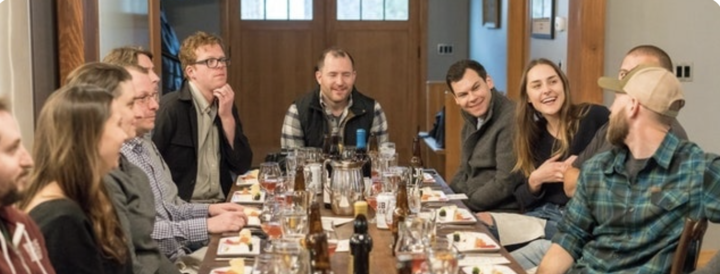Why You Need to Pay Attention to the Mental Impact of COVID-19

Lex Brinkman - Mar 29 2021, 12:11:31 PM

In most offices, there are typically three types of people: the ones who feel a moral obligation to remain upbeat regardless of their internal sphere, the ones who tell you exactly how they feel, and the ones who don’t give any indication of their personal or emotional landscape. Right now, all three have one thing in common: They’re exhausted, nervous, and altogether done with a protracted adjustment period that’s been positioned as everything from the "new normal" to the end of the world as we know it. Tension is high, along with fatigue, and very few would call themselves content (and they might even be lying).
Let's go back back to Psych 101, where you were forced to come to terms with the fact that social isolation had tangible effects. Even employees living with other people are likely to feel the impact of a reduced social circle manifest in the way they perceive or deliver communication, as well as a shift in mood and motivation. Here are some of the most common social-emotional dynamics that are in play with employees on lockdown.
Miscommunication that erodes trust
More recently, employees seem to be taking what would normally be seen as constructive feedback as a personal attack. An employee-manager relationship is based on trust that is built daily through small interactions. The lack of social enmeshment and increase in remote communication mean each person is getting less verbal and physical cues.
The impact of removing social cues shows up in fractured communication. Maybe a benign response feels passive-aggressive, and it causes someone to worry if they did something wrong. A pattern of miscommunication can erode the connection between coworkers, as well as make the hierarchy of manager-employee feel more rigid. People are less likely to speak their minds and more likely to feel uncomfortable. This doesn't bode well for innovation, honesty, or progress — all of which are vital to team success.
Ever-present employment insecurity
If you listen to the news at all, it can feel like we’re teetering on the edge of an unprecedented economic collapse. Whether the threat is real, the impact of the speculation certain is. Employees are worried about keeping their jobs and what suddenly being laid off during a period of intense hiring competition will mean for their livelihood. This anxiety doesn’t translate to eager employees trying to prove themselves with productivity or manifest with a new zest for life.
Rather, this is likely to cause a freeze response. For example, coming to superiors seeking help or admitting mistakes may be harder. Additionally, setting boundaries or saying no feels like it may jeopardize their good standing. This could lead to many taking on more work than they can reasonably accomplish. Combine this anxiety with heavily blurred lines between work and home life, and employees may feel especially burnt out.
Depression manifesting in the workplace
Forget the bland bouncing ball burned into your brain by pharmaceutical commercials in the early 2000s — depression can happen to varying degrees and take many different forms. It can be as extreme as failing to show up for work, but it can also look like spending too much time on social media, losing the motivation to start new projects, or shutting down instead of contributing to conversations you normally would enjoy being a part of.
None of these impacts may be things you as an employer are equipped to solve on your own, but you should be aware of them. It will inform your empathy and sensitivity to what your employees are feeling. Not to mention, you might be experiencing some of them yourself.
Now is the time for team leaders to pay close attention and step up. It's common for companies to reiterate how much they care about their employees, but what does supporting your workforce look like during the pandemic?
Even if you feel like you have a pulse on your team, something as simple as a virtual team-building event or even a virtual after-work happy hour can go a long way. Putting effort into fostering the direct connections and trust we need to work together on a daily basis will combat the impacts of reduced social exposure and remote work environments.
Originally published at Mar 29 2021, 12:11:31 PM. Updated on Jun 19 2025.









